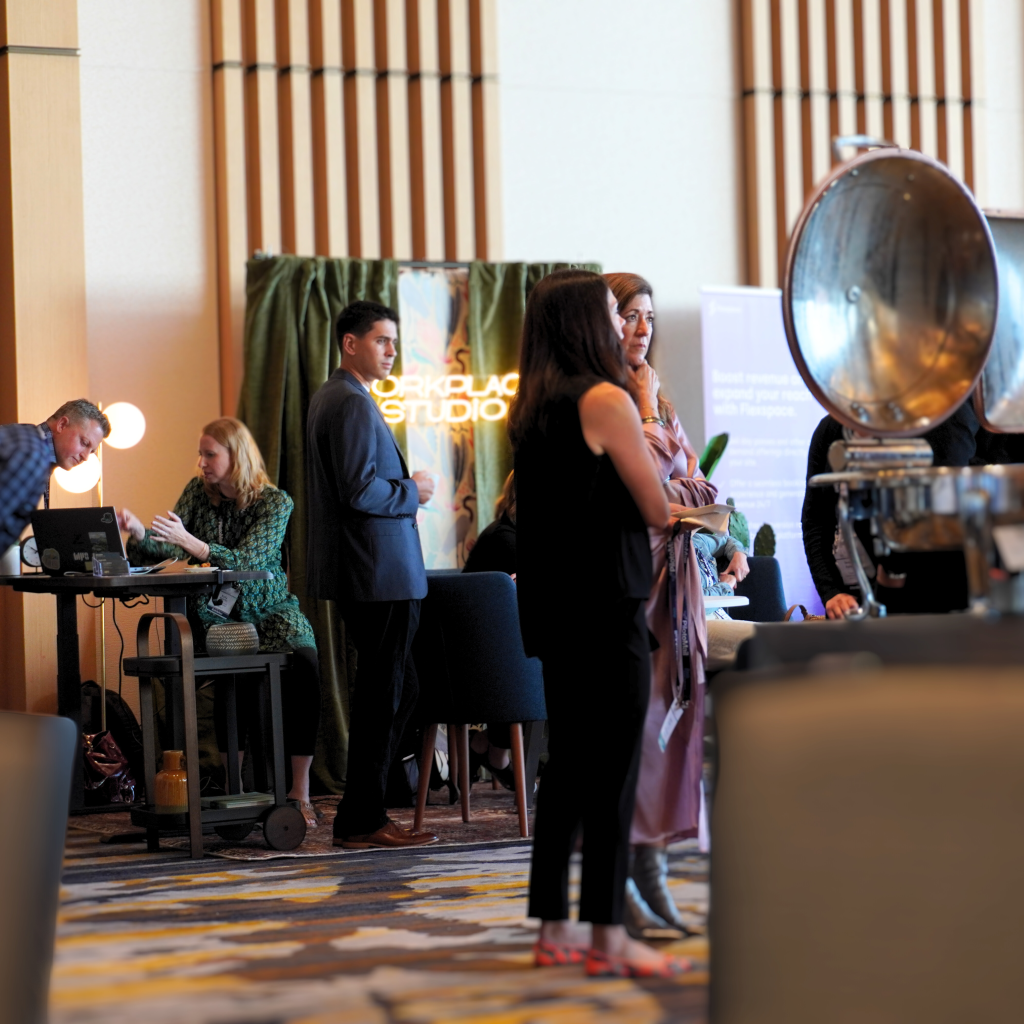
3 Takeaways from GWA’s 2023 Flex Forward Conference
The community is eager to learn and delve deeper into the evolving flex work landscape, recognizing the importance of industry standards and the value of challenging conversations.

The community is eager to learn and delve deeper into the evolving flex work landscape, recognizing the importance of industry standards and the value of challenging conversations.
As we’ve come to expect for the past few years, the Global Workspace Association’s Flex Forward Conference has consistently served as a vibrant community hub (here is last year’s GWA recap). Keynote speakers encourage us to look beyond ourselves and what we know, while company culture-based conversations aim to change how operators see their spaces.
From panels delving into how the strategic use of AI can enhance productivity within coworking spaces to companies like OfficeRnD continuously developing products and services to reimagine what flex can truly look like. There’s a clear focus on how leveraging tech can expedite what we once only thought possible 10 years from now. Companies such as Essensys have focused on making the user experience with minimal friction. This removes the need for multiple points of contact and instead shifts toward a seamless experience, as Kurt Patric, Business Developer Director at the company, explained. Warren Hersowitz from YardiKube stressed the importance of being everywhere. He pointed out that coworking operators should be on all listing sites because their ideal clients prioritize efficiency. In today’s market, there is a growing demand for automation, user-friendliness, and an ROI that makes sense for operators at every stage.
John Egan from Lucid Private Offices emphasized the importance of prioritizing culture as our strategy. We echo this sentiment, recognizing that a strong culture serves as the catalyst for a thriving community. Nancy from Quest contributed to this conversation by distinguishing two facets of culture: center culture and company culture. Though intertwined, they manifest in different ways. Center culture is the soul of the space, reflecting its uniqueness. Company culture is the broader aspect of how your organization runs, from the mission and vision to the core values that trickle down into your center culture. In coworking spaces, company culture transcends beyond the physical space. It’s what brings a diverse group of professionals together. It’s how communities are made.
Nick Clark from Common Desk, shared his first experience pitching a managed contract and how difficult it was at the time. Since that first rejection, they’ve been successfully signing managed contracts nationwide with 20+ locations and growing. If there’s one thing that all panelists on this talk agreed upon, including Peri Demestihas from Industrious and Anne Draper from Hines: there’s never been a better time for managed contracts. Landlords are now more willing than ever to negotiate and many are actively seeking out brands with a proven track record. Despite the floodgates opening with closed Wework locations coming onto the market and new opportunities springing up, the panelists all cautioned that every deal should be closely analyzed to make sure that it is a win-win for everyone involved.
The community’s strong desire to learn and explore deeper insights is evident. Events such as these serve as valuable introductions to industry newbies, offering insights into topics that matter when you are just starting out. Upholding industry standards in this dynamic ecosystem is commendable, but as the landscape of flexible work evolves, so does the need for deeper conversations.
Industry veterans are on the hunt for the next best thing and the secret to achieving what no other has achieved before. We are fully capable of engaging in these crucial discussions. Even more, we owe it to ourselves and our community to push the needle forward. As John Herring from FUSE Workspaces aptly said during his culture talk, ‘None of us are experts,’ which means we can all benefit from challenging conversations.
PilotoMail is a mail management platform that creates recurring revenue streams for mailrooms through postal mail handling automation, and virtual mailboxes for the remote workforce. Property managers, coworking spaces, mail centers & registered agents can handle large volumes of mail efficiently, comply with all postal regulations, and increase revenue from their existing footprint effortlessly.